![Post Image about The Secret Weapon of Elite Poker Players: Unmasking HUDs in [year] - Poker Tools Blog](https://betterchecked.com/cdn-cgi/image/format=auto,metadata=none,onerror=redirect,fit=scale-down,width=234,quality=35/https://cdn.sanity.io/images/6llxa8fs/production/c3671c6f26d82d64abef68ca4500f2cdff798431-1024x1024.png?w=1024&fm=png)
The Secret Weapon of Elite Poker Players: Unmasking HUDs in 2024


New malware is trying to steal card info from online poker players. Here's how you can protect yourself.
Ever thought about your poker tools getting hacked? It's a pretty wild idea, right?
There's a new player in the game, and surprise, surprise - it's not human. It's harmful software, hidden in some lesser-known poker programs, ready to peek at your online cards.
So, how do we keep our poker software safe from this online threat?
Stay sharp, folks; things are getting serious. Or should I say, 'seriously digital'? ;)
I never thought my poker tools could be used against me. This sneaky virus, a real card shark, infects the software I use to improve my game, spying on my online cards.
It learns how I play and then tells its creators so they can cheat. It's a tricky enemy, using my desire to win against me.
Now, I know I need to be careful about which poker tools I use, and always keep my security software updated. Shady programs take advantage of our desire to get better - talk about a bad hand! But knowing what's up is key.
By understanding how this poker virus works, I can protect myself from it. The solution?
But I can't be careless. This clever virus will change, and so, the fight continues... like a never-ending poker game, haha!
As an experienced online poker player, I know that playing card games online isn't always safe. Malware - a scary word for anyone who knows tech (and even scarier for those who don't) - can seriously mess with my game and personal info. The usual suspects in this digital danger zone are things like keyloggers, screen scrapers, trojans, spyware, and ransomware. These nasty programs can steal your game history, passwords, and even the money you've won. Yikes! So, how to protect yourself from these online baddies? Stay alert and use reliable software. It's super important to have antivirus software and keep all your systems and software up-to-date. Be careful when downloading stuff from sketchy sources and never click on links or attachments in emails from people you don't know. Remember, these dodgy poker tools prey on our desire to win, so tread carefully. Or as I like to say, 'Don't gamble with your security!' ;)
![Post Image about The Secret Weapon of Elite Poker Players: Unmasking HUDs in [year] - Poker Tools Blog](https://betterchecked.com/cdn-cgi/image/format=auto,metadata=none,onerror=redirect,fit=scale-down,width=234,quality=35/https://cdn.sanity.io/images/6llxa8fs/production/c3671c6f26d82d64abef68ca4500f2cdff798431-1024x1024.png?w=1024&fm=png)
The Secret Weapon of Elite Poker Players: Unmasking HUDs in 2024

Crunching Numbers Like a Pro: Mastering Equity Calculators

Poker Tools for the Ambitious Player: How to Reach New Heights in Tournaments

Unlocking Pro-Level Play: The Secrets of Hand Ranges

Legends in the Spotlight: The Best Poker Matches of the Last Decade
![Post Image about Decode Your Mistakes: The Ultimate Guide to Hand Analysis in [year] - Poker Tools Blog](https://betterchecked.com/cdn-cgi/image/format=auto,metadata=none,onerror=redirect,fit=scale-down,width=234,quality=35/https://cdn.sanity.io/images/6llxa8fs/production/263c0839fd79681c48f6a7ab68404064588570b7-1024x1024.png?w=1024&fm=png)
Decode Your Mistakes: The Ultimate Guide to Hand Analysis in 2024

The HUD Hall of Fame: Timeless HUD Poker Tools That Have Stood the Test of Time
To show how serious this is, let's look at some examples of malware that targets online poker players.
One night, I was playing online poker and decided to download a new tool to up my game. But, oh boy, this 'poker helper' turned out to be harmful malware that spied on my virtual cards - talk about a backstabber!
While I played, it tracked my moves and took screenshots of my hands, sending the info to cheaters who used it against me. I never thought wanting to win could make me an easy target :(
This poker malware made my own computer betray me, secretly watching my cards and helping my opponent. Now, my account's empty and I've learned a hard lesson about staying safe.
Looking back, I see how important it is to protect my poker software from malware like this. So remember folks, not all that glitters is gold!
As an online poker player, I've always been careful about harmful software that can mess with our digital cards. These are the ones hiding in less popular poker tools or software, ready to steal our personal and financial info - talk about a royal flush of privacy invasion! It's a sneaky trick, and it's not just about losing at poker. The harmful software can:
It's like playing with an unfair advantage - quite the 'ace up their sleeve', huh? But there's some good news :) As we're learning how to protect ourselves from these cyber crooks, it's super important to:
Because nothing says 'fun' like a side of identity theft with your poker game, right?
Online poker is facing a new threat - card-watching malware. Ever wondered how these cyber crooks can see your online poker cards? It's pretty creepy, right? They use things like keyloggers and screen scrapers to spy on your game.
Sadly, these two types of malware often work together. A hacker might use a keylogger to get into your poker account, then use a screen scraper to watch each game as it happens. As cybersecurity gets better, so do the tactics used by criminals. So, it's super important for everyone online – including poker players – to stay alert and take steps to protect their digital privacy and security. So, how can you protect your poker software from this threat? Being careful is key.
So, play safe, folks! :)
As an online poker player, I was shocked - and not in a good way - to find out that my poker tools could be used against me. There was harmful software hidden in the background, ready to strike when least expected - like a ninja, but less cool :(. This bad software doesn't just mess with your virtual cards but also goes after your personal and financial info.
It can get to your passwords, credit card numbers, and other private stuff - talk about an invasion of privacy!
To stay safe from these risks, it's super important to:
Remember, the best way to protect against harmful software is staying alert and taking steps to protect your personal data. So let's all be cyber ninjas, yeah? :)
When I'm playing poker online, I sometimes wonder: am I just having fun, or am I risking my safety? The stakes are higher than ever.
It's not just about the game anymore; it's about keeping my personal info safe from malware, viruses, and spyware.
Could my love for winning make me an easy target for these nasty poker tools? (I mean, who doesn't love a good win, right?)
The answer is obvious - staying alert is the new game plan.
In this online poker world, it's not just about reading the other players, but also about outsmarting hidden threats.
We need to think more about the possible dangers that could be lurking behind your next move.
It doesn't stop at just checking out your poker hand info.
It goes after the banking info on your computer, which could lead to money theft.
Your usernames and passwords for different platforms can be a treasure trove for cybercriminals.
Complex and unique passwords might help, but they're not bulletproof.
(Who knew 'password123' wasn't a good idea?)
This includes sensitive stuff like your social security number, driver's license details, address, and more.
Misuse of PII could lead to identity theft, something no one wants to deal with.
(Talk about a bad hand!)
It might try to access your emails which could contain valuable info, like business talks, personal chats, or even potential blackmail material.
If you're storing files on platforms like Google Drive or Dropbox, malware might try to get in and mess with your private documents, photos, and videos.
While it might seem unimportant, cybercriminals can learn a lot from it, including your interests, shopping habits, and even your daily routine.
As a poker player, I'm always careful about the tools I use to get better. But, surprise, surprise, I didn't see it coming that some of these tools could actually hurt me :( Recently, I found a nasty software that's out to get poker players and steal their money details.
This bad software, like a sneaky little ninja, sneaks into lesser-known poker tools and waits for an unsuspecting player to download them. Once downloaded, it starts collecting sensitive stuff like login info, passwords, and even credit card numbers. It uses this info to make a profile of the player, which is then sold to other players or even to the poker site itself.
Talk about betrayal, right? This really shows why you should only use trustworthy poker tools. To protect yourself from this kind of bad software, be smart when downloading new stuff.
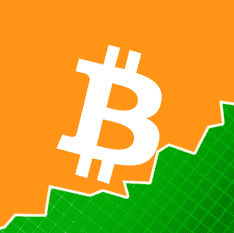
3 bullish arguments that Bitcoin price just bottomed at $53K

Messi & $WATER promotion: Solana token's wild rise and ethical concerns

Mid-March deadline for Solana ETF: Analyst predicts big moves
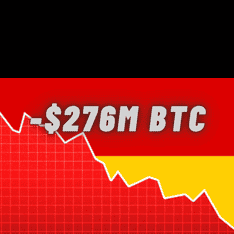
Germany sells BTC: government readies $276M Bitcoin sell-off
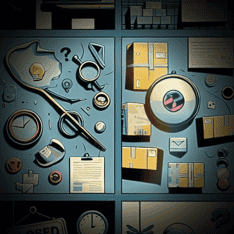
Why dropshipping is bad in 2024: truth behind the failure rate

Trade skins for PROFIT: 5 ways to make it work
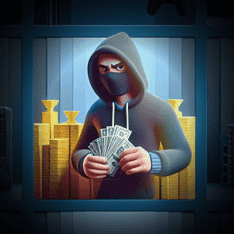
Ukraine's shocking PS4 farm bust for illegal FIFA coins

Hypedrop closing: exit scam claims & withdrawal issues
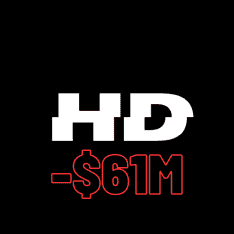
Hypedrop crypto hack: Alphapo's $61M loss in 2023
While poker tools can help, it's important to remember that not all tools are created equal. Do your homework before downloading any software, and stay sharp to protect yourself from bad software and other online dangers. Because, let's face it, nobody wants to be the fish at the poker table, right?
The potential gain doesn't make up for the risk, who would've thought? I should've been more careful. It's super important to be cautious with poker software because shady people can exploit our desire to win. I never thought my favorite tools could turn against me, but hey, dodgy poker tools are really everywhere. Playing smart and safe is key. I regret not knowing better before - hindsight is 20/20, right? :)
If you play poker a lot, you know that online poker can sometimes attract bad software - it's like a moth to a flame! Recently, they discovered a new kind of bad software that's made just to target poker players and steal their digital cards. This sneaky software watches players and steals their cards, giving its creators an unfair edge. It's like a pickpocket in the virtual world! To keep this poker-targeting bad software at bay, there are some safety steps you should take.
Remember, online poker can be a big target for bad software, so you need to be careful when installing less popular poker tools or software. It's like walking through a dark alley at night - you've got to be cautious! Following these safety steps can help you avoid falling victim to poker-targeting bad software. Stay safe out there, folks! :)
Ever worried about your poker tools getting hacked? I started thinking about this when I learned about poker malware.
It's a real concern, especially if you're using less popular poker software.
It's like having fake friends who are actually enemies, right? :/
In our techy world, we often forget that our favorite poker tools can be messed with by hackers.
These guys aren't just after your cash, but also your personal info and data.
![Post Image about The Secret Weapon of Elite Poker Players: Unmasking HUDs in [year] - Poker Tools Blog](https://betterchecked.com/cdn-cgi/image/format=auto,metadata=none,onerror=redirect,fit=scale-down,width=234,quality=35/https://cdn.sanity.io/images/6llxa8fs/production/c3671c6f26d82d64abef68ca4500f2cdff798431-1024x1024.png?w=1024&fm=png)
The Secret Weapon of Elite Poker Players: Unmasking HUDs in 2024

Crunching Numbers Like a Pro: Mastering Equity Calculators

Poker Tools for the Ambitious Player: How to Reach New Heights in Tournaments

Unlocking Pro-Level Play: The Secrets of Hand Ranges

Legends in the Spotlight: The Best Poker Matches of the Last Decade
![Post Image about Decode Your Mistakes: The Ultimate Guide to Hand Analysis in [year] - Poker Tools Blog](https://betterchecked.com/cdn-cgi/image/format=auto,metadata=none,onerror=redirect,fit=scale-down,width=234,quality=35/https://cdn.sanity.io/images/6llxa8fs/production/263c0839fd79681c48f6a7ab68404064588570b7-1024x1024.png?w=1024&fm=png)
Decode Your Mistakes: The Ultimate Guide to Hand Analysis in 2024

The HUD Hall of Fame: Timeless HUD Poker Tools That Have Stood the Test of Time
They use fancy malware to break into your system, turning your go-to poker tools into their playground.
So, how do we keep our poker software safe from this threat?
The answer is simple: always update your system.
Updates fix the weak spots that these digital bad guys love to exploit.
It's like having the best hand against the worst one in poker.
So, it's super important to stay alert and keep updating.
After all, no one wants their winning streak ruined by a sneaky computer virus, right?
As we dive deeper into online poker, making sure our systems are secure becomes more and more important.
We need to remember that while we're caught up in the game, there are others trying to take advantage of our weak spots.
That's why it's crucial to keep your system updated and only use reliable poker tools.
As a writer for a review blog about poker tools, I've seen how important it is to use trustworthy software to avoid malware attacks.
This post highlights the potential danger of lesser-known tools and the need to be careful when choosing software for online poker.
The online poker world isn't risk-free.
But, with the right precautions, you can enjoy the game without worrying about malware spying on your cards.
Always remember, the best defense is a good offense.
So, keep your system updated, stay safe, and keep winning.
This article was written, checked and verified by multiple authors to ensure maximum accuracy and up to date data. We strive for providing the best and most helpful resources about Poker Tools available.
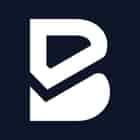
Have suggestions or want to become an author for our poker tools magazine as well?